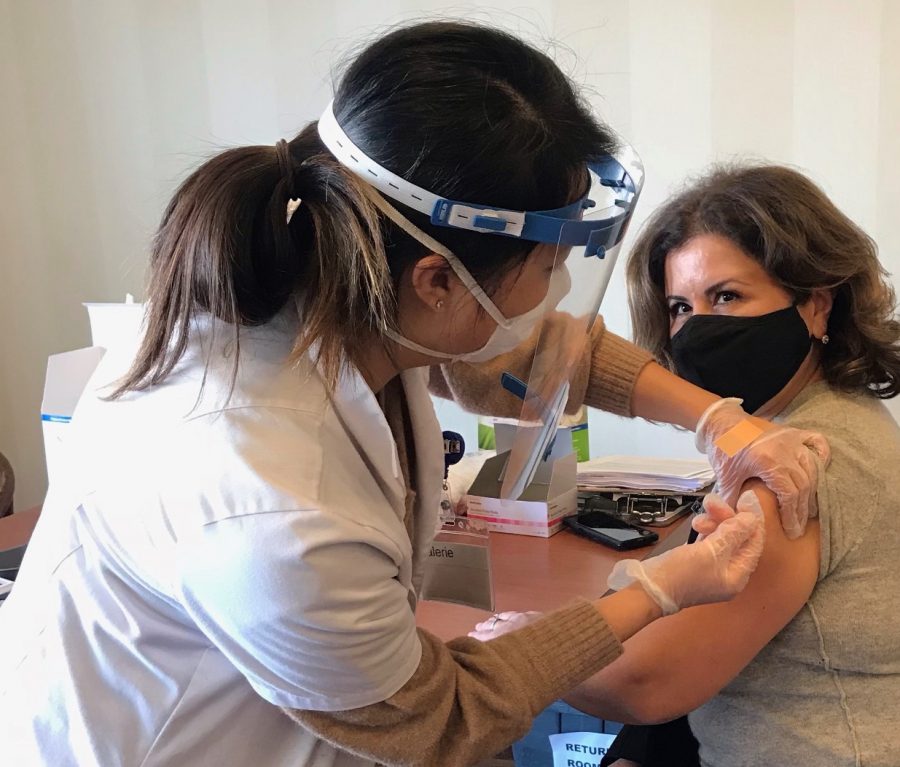Essential workers are lining up to receive their first dose of the COVID-19 vaccine. However, the lingering question remains: how much will this vaccine affect the day-to-day life of workers?
According to San Mateo County Health, vaccines are starting to be distributed to essential workers. San Mateo County initially received 5,850 doses of the Pfizer vaccine, but the county expects to receive six times that number sometime soon.
Currently, essential workers are given the vaccine before the longer-term residents because of their excessive contact with outsiders making them have a higher risk for infection.
“From a skilled nursing perspective, it’s more important for staff to get vaccinated than patients. This is because patients don’t leave the facility; it’s the staff who brings the virus to them from their other work or community in general,” said Julie Mammad, a Licensed Nursing Home Administrator.
At Mammad’s facility, all staff and residents have received the first dose of the Pfizer vaccine on Dec. 30, 2020. They are currently waiting on their second dose that will be administered on Jan. 20.
The vaccination of essential workers and patients will decrease the spread of the virus, which will significantly impact the pandemic. After being vaccinated, the fear of exposure will lessen, allowing a calmer environment.
“Wearing masks and social distancing is already a great way to prevent the virus from spreading, but the vaccine can be the solution to ending the pandemic. Humans will be able to fight off the virus when someone is exposed since it’ll be working with the immune system. If everyone gets vaccinated, it will help to build herd immunity, and we’ll have a safer environment,” said Irada Mammadova, a Charge Nurse at the Channing House Retirement Community.
With the vaccine, the virus will be easier to fight off, and it lessens the virus’s chance of spreading from person to person. Once the vaccine is distributed to everyone, work environments will become more relaxed. Reduced worrying about catching the virus and lower cases will alleviate the current amount of stress.
“I work with patients who come out of ICU. Ever since the pandemic started, the majority of the patients are testing positive with COVID-19. During the past two weeks, COVID cases have increased in my facility, and it has become a challenge for the staff to protect themselves. However, since my peers and I have already gotten the first round of the Pfizer vaccine, I feel optimistic that my workplace will become safer after everyone has received all rounds of the vaccine. My workplace will also probably differ a whole lot once the vaccine is available to anyone since fewer cases will be coming in,” said Nazli Kalbaliyeva, a nurse.
Due to the growing amounts of vaccine distribution, healthcare workers have a positive outlook on their daily operations, including working with high-risk residents. They are hoping these operations will be filled with less worry of transmitting the virus because of their newly received vaccines.
“I can’t wait for the vaccine to be available to everyone and bring this pandemic to an end,” Kalbaliyeva said.












